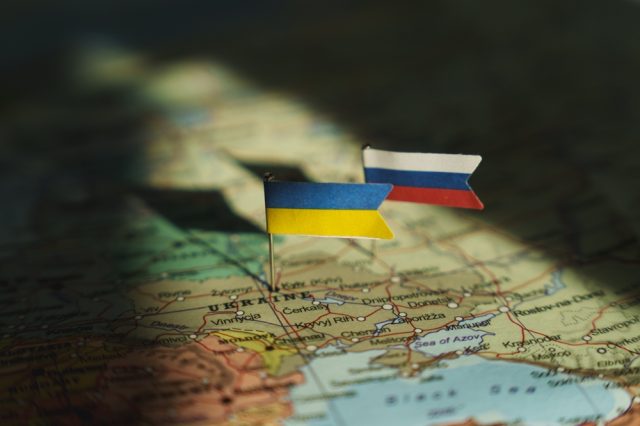
The recent official statement by the Italian government confirms a clear and unequivocal position: Italy will not send a national force to Ukraine.
This choice, reiterated following a summit at Palazzo Chigi, demonstrates the solidity of Italian foreign policy, characterized by prudence, coherence and respect for international balances. At a time of growing geopolitical tension, the government led by Giorgia Meloni has drawn a clear line, rejecting the hypothesis advanced by France and Germany of direct involvement on the ground, while leaving open the possibility of a monitoring mission under the aegis of the UN.
The decision of the Italian government is not the result of hesitation or indecision, but of a well-considered strategy. The international context is constantly evolving and tensions between the great powers make a foreign policy based on diplomacy and coordination with allies necessary. In this scenario, Italy has chosen to maintain its commitment alongside Kiev, without however adopting measures that could lead to an escalation of the conflict. The priority is to provide security guarantees to Ukraine in the Euro-Atlantic context, avoiding unilateral actions that could worsen the crisis. The summit held at Palazzo Chigi was a key moment to reaffirm the unity of the Italian government on such a delicate issue. Giorgia Meloni wanted to ensure a common position among her ministers, publicly discouraging any disagreements that could undermine the government’s credibility. The tensions that emerged in the previous days between Matteo Salvini and Antonio Tajani were the subject of discussion, but the official statement denied any internal divergence, underlining instead a “solid convergence” on the guidelines of Italian foreign policy.
The Minister of Defence, Guido Crosetto, together with diplomats and military personnel, attended the meeting, confirming the operational nature of the meeting. The main objective was to establish a clear strategy in view of the summit of the “willing” in Paris, where Italy will present itself with a clear and coherent position. Italy has firmly rejected the idea of participating in a military force on the ground in Ukraine, as proposed by French President Emmanuel Macron and British Prime Minister Keir Starmer. This refusal does not mean a disengagement from European security, but rather the desire to pursue solutions based on international law. The hypothesis of a direct intervention in fact raises enormous risks, including the possibility of an escalation that could directly involve NATO.
Alternatively, the Italian government looks favorably on a UN role in monitoring the implementation of a possible ceasefire. This prospect, supported by several international partners, could represent a sustainable way to ensure stability in the region, without compromising the geopolitical balance. The Italian position is part of a broader framework of cooperation with European and Western partners. The statement from Palazzo Chigi underlined the importance of the “Euro-Atlantic context” as a basis for building effective security guarantees for Kiev. One of the hypotheses under discussion is that of a NATO “Article 5 bis”, aimed at strengthening European security without implying a direct involvement of Italian troops.
Meanwhile, Foreign Minister Antonio Tajani reiterated that Italy will not send troops on missions not authorized by the United Nations. This position is in line with the need to maintain a multilateral approach and avoid actions that could be interpreted as provocative by Russia. Furthermore, Tajani highlighted the need for dialogue with Berlin to balance the growing axis between Paris and London, strengthening coordination at European level. While Europe discusses the best strategies to support Ukraine, the Kiev government has expressed the need for troops ready to fight, rather than peacekeepers. However, Italy remains firm on its position, reiterating its support for Kiev without accepting direct involvement on the battlefield. The Italian strategy focuses on concrete, diplomatic and logistical aid, rather than direct military intervention. The Italian government’s decision not to send troops to Ukraine confirms the validity of the country’s foreign policy. In a context of international tensions and pressure from some European allies, Italy has been able to maintain a clear position, based on prudence and respect for international law. The choice not to adhere to interventionist strategies and instead to favor a multilateral approach with the support of the UN demonstrates the maturity of Italian politics and its willingness to contribute to European security without compromising global stability. In an era of uncertainty and conflict, coherence and responsibility are more necessary than ever, and Italy is demonstrating that it can face international challenges with balance and determination.



 Subscribe
Subscribe